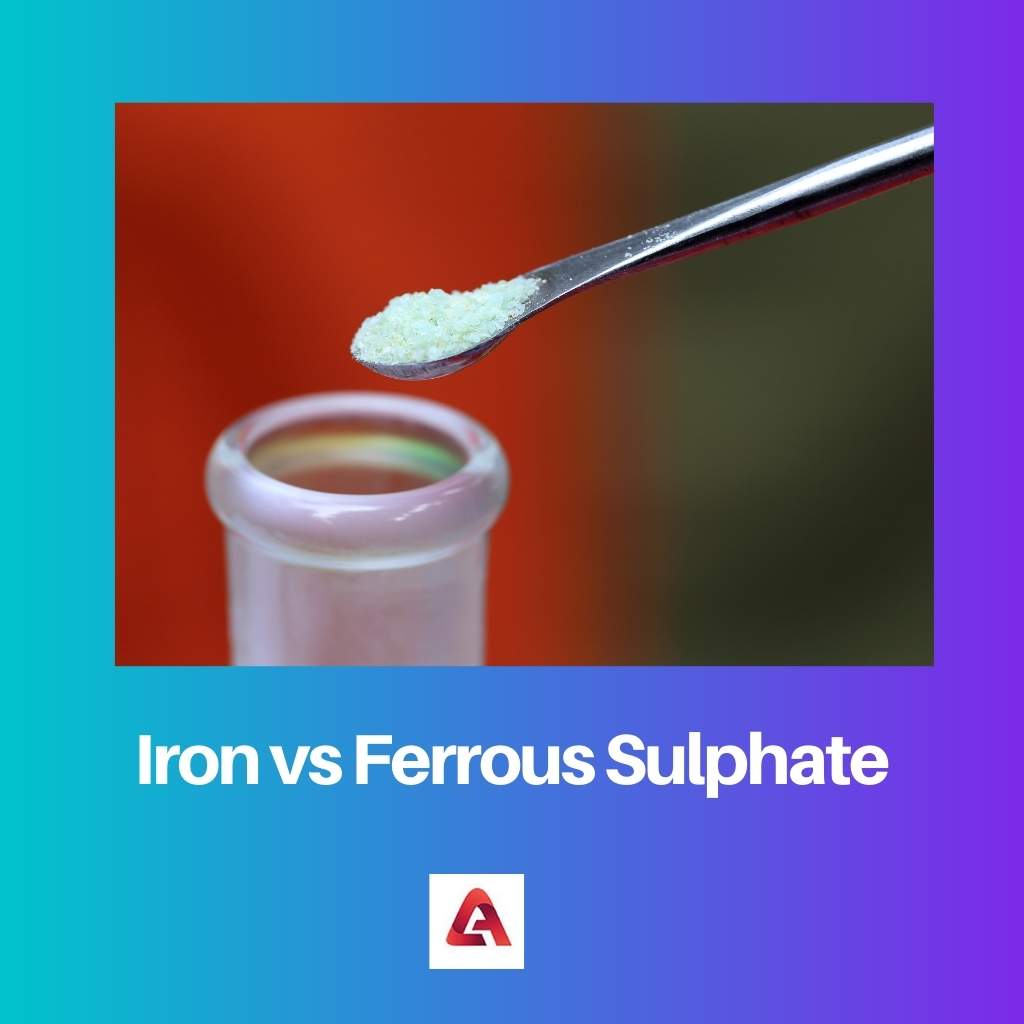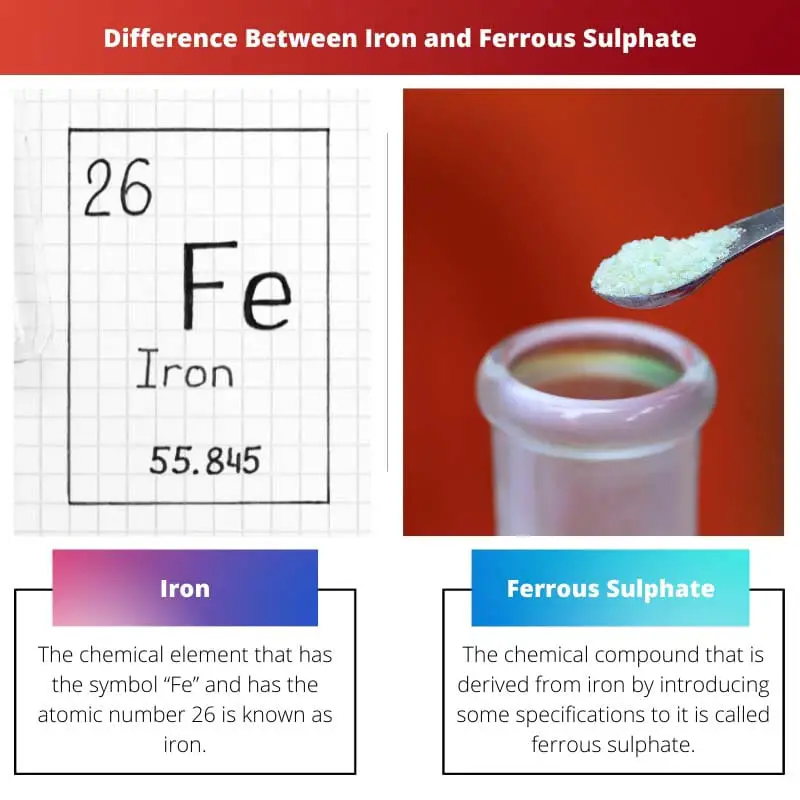We use them in our lives in one way or another at some point. They exist in several forms, and there are various types of elements as well.
Key Takeaways
- Iron is a chemical element and a metal, while ferrous sulphate is a chemical compound containing iron.
- Iron is crucial in construction and manufacturing, whereas ferrous sulphate is used as a dietary supplement and in water treatment.
- Ferrous sulphate provides a source of bioavailable iron for the body, helping to prevent or treat iron deficiency anemia.
Iron vs Ferrous Sulphate
Iron is an essential chemical element to make haemoglobin that carries oxygen throughout the body. It is an essential mineral needed for the growth and development of the body. Ferrous sulphate is an iron medication for the prevention or treatment of anaemia. It acts as an iron supplement to maintain regular blood iron levels.

It is one of the most useful chemical elements. It falls in group 8 and period 4 in the periodic table, and it is a part of the d-block.
There are several other names by which it is addressed. However, the IUPAC name of ferrous sulphate is iron II sulfate.
Comparison Table
| Parameters of Comparison | Iron | Ferrous Sulphate |
|---|---|---|
| Meaning/ Definition | The chemical element that has the symbol “Fe” and has the atomic number 26 is known as iron. | The chemical compound that is derived from iron by introducing some specifications to it is called ferrous sulphate. |
| Type of | Chemical Element | Chemical Compound |
| Uses | It is used to produce steel, along with other additives. It is also used to make alloys, it is also used to make pipes and valves etc. | It helps in treating iron deficiency, and it is also used to avoid iron deficiency. It also generates red blood cells in the human body. |
| Chemical Properties | Rusting, iron only dissolves in dilute acids. The melting point of iron is 1536 degrees Celsius, the boiling point of iron is 2861 degrees Celsius. | Ferrous sulphate in its anhydrous state has a boiling point of 680 degrees Celsius. Ferrous sulphate dissolves in water. |
| Physical properties | Iron is malleable and ductile, it also possesses lustre, and it is grey or silver. | Depending on their hydrated states, ferrous sulphate is available in colours like turquoise and a mixture of blue and green. It is odourless and in a solid-state. |
What is Iron?
The chemical element that has the symbol “Fe” and has the atomic number 26 is known as iron. It is abundantly available on Earth, and many places inside or outside the Earth possess iron in enough quantities.
It is considered the fourth most common element on the planet Earth. It is one of the most useful chemical elements. It falls in group 8 and period 4 in the periodic table, and it is a part of the d-block.
In foodstuffs like leafy vegetables, chickpeas, fish, lentils, etc., there is an abundant amount of iron, which is helpful for the human body to gather strength and energy.
Other than that, various tools are also made by using an iron. It is also used in making alloys, which are also very useful for various purposes in various fields and areas.

What is Ferrous Sulphate?
The chemical compound that is derived from iron by introducing some specifications to it is called ferrous sulphate. It is a chemical compound and also a hydrated variant of iron.
Ferrous sulphate is the hydrated form of iron, and it has several uses, physical properties as well as chemical properties. There are several other names by which it is addressed.
The monohydrate form of ferrous sulphate is white-yellow with a crystal-like structure. The heptahydrate form of ferrous sulphate has a blue-green colour with a crystal-like structure as well.
Ferrous sulphate is widely used as the predecessor for iron and its other compounds. It is widely used in medicines to treat iron deficiency. It is also used to avoid iron deficiency.

Main Differences Between Iron and Ferrous Sulphate
- The properties of iron are different from the properties of ferrous sulphate.
- Iron only dissolves in dilute acids. On the other hand, ferrous sulphate dissolves in water.




